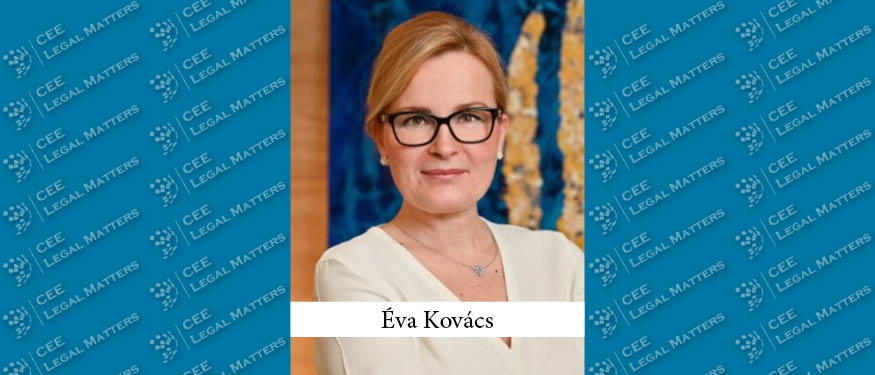In recent years, Bulgaria has increasingly prioritized the development of energy storage infrastructure as part of its broader transition to a more sustainable and resilient energy system. With growing renewable energy capacity, particularly from solar and wind sources, the need for efficient storage solutions has become critical to balancing supply and demand.
Greece: Key Differences and Selection Criteria in Concession Agreements vs Public-Private Partnerships
Governments increasingly involve the private sector in infrastructure projects through concession agreements or public-private partnerships (PPPs). While both models attract private investment, they differ significantly in financial structures, risk allocation, and regulatory framework. Choosing the appropriate model depends on project objectives, revenue generation potential, and public sector involvement in funding and oversight.
Ukraine: Public-Private Partnership Legislative Transformation for Post-War Reconstruction in 2025
The year 2025 is poised to mark a significant legislative update in Ukraine’s public-private partnership (PPP) framework, representing a critical strategic approach to the country’s comprehensive post-war reconstruction efforts. The government, Parliament, and key stakeholders are actively preparing for an extensive rebuilding effort focused on infrastructure damaged during military hostilities. This process will rely on support from the European Union, the United States, international financial institutions, and other major donors.
Romania Moves Forward with Offshore Wind: Call for Expressions of Interest To Define Future Concession Zones
A critical preparatory step towards wind farm development in the Black Sea was taken on 16 May 2025, with the Ministry of Energy’s call for Expressions of Interest to prepare a specialized study identifying the Black Sea offshore zones suitable for wind farm development. The study is envisioned under Law 121/2024 on Offshore Wind Energy, a key component of Romania’s National Recovery and Resilience Plan (PNRR).
New Legal Framework for Real Estate Mediation and Leasing in Montenegro
The Draft Law on Mediation in the Sale and Lease of Real Estate, following public consultation in the summer of 2023, is expected to be submitted to Parliament for adoption shortly.
Cease and Desist From Opening the File!
If you have received a Cease and Desist (C&D) letter, it usually means that you have violated someone else’s intellectual property rights. However, this may not necessarily be the case if you are doing business in Croatia.
Obligations Regarding Disclosure of Regulated Information Have Been Reinstated: What Issuers Need To Know
On 1 April 2025, Resolution of the National Securities and Stock Market Commission of Ukraine (“Commission”) No. 28/21/1933/K03 dated 6 March 2025 (“Resolution”) entered into force. The Resolution establishes a new procedure for the disclosure of regulated information by securities issuers during martial law.
News from Moldova: One More Piece of Legislation to Combat Delayed Payment in Commercial Transactions
On 22 April 2025, Law No. 66/2025 on combating delayed performance of payment obligations in contracts between professionals or between professionals and public authorities was published ("Law No. 66").
The Issue of Purchasing Loan-Encumbered Real Estates Will Be Solved
The new Real Estate Registration Act that came into effect in January restructured the system for registering properties purchased in installments or subject to conditions, and introduced the so-called buyer's right. However, since January, there has been considerable debate regarding whether the buyer's right can be registered on properties involved in bank financing (and therefore under alienation and encumbrance prohibition). A recently enacted amendment to the law, however, resolves this issue.
Coup de Théâtre - the Austrian Supreme Court’s 180-Degree Shift on Loan Processing Fees
In a significant turn in Austrian jurisprudence, the Austrian Supreme Court handed down a landmark decision on February 19, 2025 (file number 7 Ob 169/24i) (2024 Ruling), revising its long-standing position on loan processing fees previously upheld since its judgement in 2016 (Austrian Supreme Court 30.03.2016, 6 Ob 13/16d).
Overview of Recent Efforts to Reform Spatial Planning and Construction Regulation in Slovakia
Over the past several years, Slovakia has witnessed numerous legislative initiatives aimed at reforming the frameworks for spatial planning and construction permitting. These initiatives were designed to modernize outdated procedures, enhance legal certainty, and accelerate construction development.
New Amendment Eases Data Transfer Rules from North Macedonia to NATO Nations
On 14 May 2025, significant changes were made to North Macedonia’s personal data protection legislation. The Assembly of the Republic passed an amendment to expand the nations where personal data can be shared freely, without facing third-country transfer restrictions.
Poland: Civil Defence Regulations to Influence Private Sector
In December 2024, Poland adopted new regulations on civil protection and civil defence. It is important to note that these regulations continue the European-wide trend of reviewing national security situations and preparing for defence (the regulation entered into force on 1 January 2025).
Unexpected Turnaround for Loan Agreements Denominated in Foreign Currencies
In Hungary, foreign currency-based loan contracts became popular in 2006, as they were available at significantly lower interest rates than their forint-based counterparts. However, during the 2008 financial crisis in Hungary, debtors who had previously signed a foreign currency loan contract (most typical case was the Swiss franc loan), found themselves in an extremely difficult situation, due to exchange rate fluctuations and the crisis. Many families' repayments have tripled, leading to mass foreclosures.
Can the New US Tariffs Be Considered Under Hardship Provisions?
On April 2, 2025, Executive Order No. 14257, issued by the President of the United States of America [“U.S.”] Donald J. Trump [“Order No. 14257”], “ Regulatıng Imports Wıth A Recıprocal Tarıff To Rectıfy Trade Practıces That Contrıbute To Large And Persıstent Annual Unıted States Goods Trade Defıcıts,” introduced new “reciprocity-based” tariffs against the United States’ trading partners.
Settlement in Misdemeanor Proceedings: A Modern Tool for Efficient Legal Sanctioning of Legal Entities
The institute of settlement, within the scope of misdemeanors, was introduced into Macedonian legislation by the Misdemeanor Act in 2019. In the context of overburdened courts, all mechanisms that facilitate judicial processes are more than welcome.
EU Decarbonization Policy at a Crossroads – What Regulations Industry Can Expect
For years, the European Union has been taking measures related to the decarbonization of industry, i.e. the reduction and, in the long term, elimination of CO2 emissions. Examples include the EU Emissions Trading System, which has been in place since 2005, or the regulations on industrial emissions of 2010.
Transfer Pricing ’Task Force’ in Hungary
As of 2025, the Hungarian Tax Authority (NAV) has established specialized transfer pricing expert departments, indicating an increased focus and scrutiny on transactions between affiliated companies. The three new departments are located in Budapest and in the eastern and western parts of Hungary (one in each region) and have special competence regarding the complex transaction between affiliated parties within Hungary or cross-border alike.

































